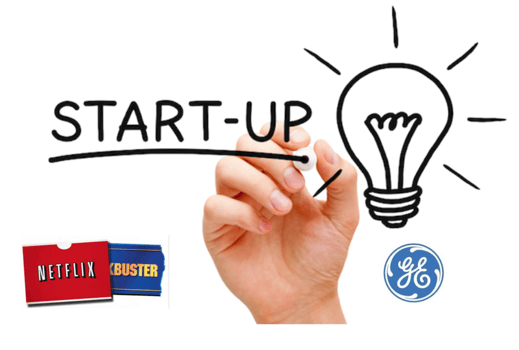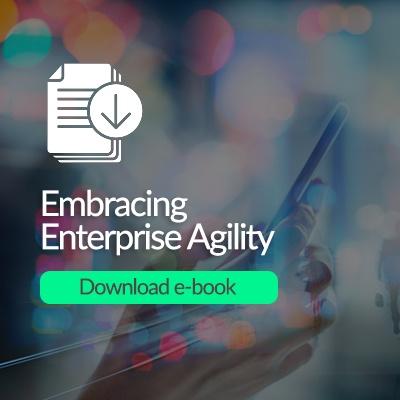I was invited to a CIO conference earlier this month in DC focused on digital innovation and IT trends. During one keynote, the speaker said, "Companies should think more like startups or end up." The phrase struck a chord with me, and provides the basis for this post.
What does end up mean? Back in 2000, Reed Hastings (NFLX founder) approached former Blockbuster CEO John Antioco and asked for $50 million to give away the company he founded — Netflix. Where would Blockbuster be if they’d taken the deal? Where is Blockbuster now? Bankrupt, non-existent. End up.
What made Blockbuster CEO decide that Netflix was not a good buy or part of his strategy? His own beliefs and the beliefs that were driving his company. Blockbuster didn't believe that customers would wait three days to watch a movie which was coming in the mail.
But how important are our beliefs or the company culture beliefs?
Let’s start by reviewing what a belief is. From what I've learned, it is a feeling of certainty about what something means. The challenge is that most of our beliefs are generalizations about our past, based on our interpretations of painful and pleasurable experiences. The challenge usually is that most of us do not consciously decide what we’re going to believe. Instead, our beliefs are often misinterpretations of past events.
If we take this example further, who could have understood or visualized what Netflix would become? And why did Netflix transform to be what it is today ($6 billion USD in revenue, 75 million users). Because of its own CEO's beliefs.
What does “thinking like a startup” mean?
GE has traditionally been regarded as a big conglomerate. I used to work in GE and saw this first hand. For the past few years Jeff Immelt (GE CEO) has promoted more and more startup thinking, calling it "FastWorks." It combines a set of tools and behaviors designed to deliver better outcomes for customers faster (HBR article). BusinessWeek also recently published a great article around GE and its startup thinking last month. It highlights an amazing transformation of GE using agile and focused thinking.
A quick search in Amazon for "Think like a Startup” produces a list of + 50 books. The main characteristics of Startup thinking are:
- Agility, speed & flexibility
- Getting it done
- Focus on innovative breakthroughs
- Disrupt, disregard status quo
Fintech companies are disrupting the legacy banking & insurance systems with a push towards enterprise agility because of this thinking. It is and will be a great case study one day for students. Each day more and more successful startups grow, get VC funding and replace some part of the market share of existing companies. We know about eBay, Uber, TransferWise. But how many more startups will emerge in the next years? Surely, many.
Seize the startup mindset, and watch your creativity and imagination light up. Unleash your own creativity and change your world.
This is YOUR moment. Think like a startup.























